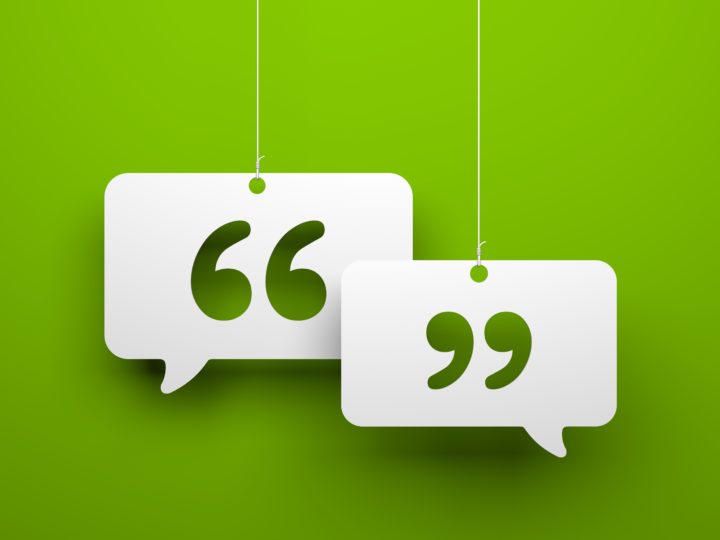Quotations: Strong Medicine If Used Properly
One of the best ways to add power and sparkle to your speech is to use an apt quotation.
As Brendan Behan said, “A quotation in a speech, article or book is like a rifle in the hands of an infantryman. It speaks with authority.” That “borrowed” authority from more accomplished and better-known experts is an excellent way to add power to your argument.
Quotations can also add sparkle and even a certain literary flair through the clever way they’re phrased. As Montaigne said, “I quote others only the better to express myself.”
But like any strong medicine, quotations need to come with a warning label. The first is that if you overuse them you may be perceived as not having your own point of view. As Dorothy L. Sayers said, “A facility for quotation covers the absence of original thought.”[1] Second, just like any medicine used past its expiration date may be ineffective or even harmful, many quotations have become clichés and have outlived their usefulness. Almost anything attributed (correctly or incorrectly) to Twain or Einstein falls into this category. Finally, just as some medicines need to be taken with food, any quotation you use should be a supplement to your own original point of view, not a substitute.
Here are a few additional tips to use quotations effectively:
- Make sure you quote them correctly and assign proper credit. If Einstein had said half the things people attribute to him, he never would have had time to think about relativity. It’s so easy to check quotations that you look lazy if you don’t.
- In you’re unfamiliar with the person who said it, look them up[2]. This may prevent embarrassment, as I suffered once when I quoted Konrad Lorenz and then found out that he was tainted by association with the Nazi party.
- Quote someone especially meaningful to your particular audience, such as their own company’s CEO or someone respected in their industry. I’ve had good success with highly technical audiences, for example, by quoting Richard Feynman.
- Dig a little deeper to go beyond the ones everyone already knows. Everyone has heard some variation of: “Sorry for sending such a long letter; I didn’t have time to write a short one,” but he also said: “NO CAN DO 2 PAGES TWO DAYS. CAN DO 30 PAGES 2 DAYS. NEED 30 DAYS TO DO 2 PAGES”.[3]
- When using them in a speech, keep them short, both so you don’t bore your audience and so you can memorize them and not have to read them off your screen. It’s OK to edit a long quotation as long as you don’t distort the original meaning.
[1] Normally I would not use so many quotations in one post, but it is about quotations…
[2] As I had to do for two of the quotes above. Brendan Behan was an Irish poet, and Dorothy Sayers an English crime writer and poet.
[3] In fairness, this one may be apocryphal.



